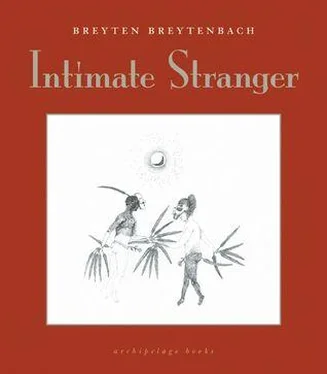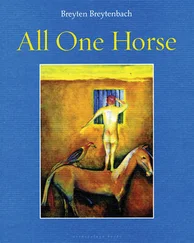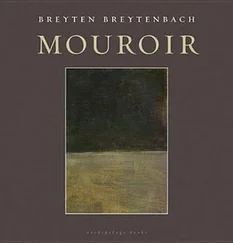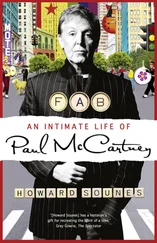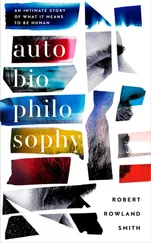Breyten Breytenbach
Intimate Stranger
“The inside is just the otherside of the outside, but it’s also a different place altogether.”
A. NADER, Notes on Love
“Umlomo yisihlangu sokuzvikela”
(The mouth is the shield to protect oneself)
XHOSA SAYING
“Mimo, chitatel’, mimo!”
(Wrong, reader, wrong!)
VLADIMIR NABOKOV, Lips to Lips
the older you become the more silent you are
outside in morning sun
light over one shoulder
you read in the book
a knapsack for the night
the wisdom of all uncertainties
(oh, the showdown of the word!)
through heavens the pink hot-air balloon drifts
with tongue of stalking fire
on its way to mountains
you don’t hear
and later cicadas go murmur-murmur
to stitch and hem heat’s silences with shadows
the hunter’s fire-stick barks
in the hill of the fox
and the boar and the frog and the rabbit
so rapidly death jumps up
with mute cry
of life’s anguish flared in eyes
soon to fade
you cock an ear now
the world no longer revolves round
the long dance of life with wife
with child with choir of words
with old dog patiently watching the yard
until you are ripe enough to eat –
everything wonderful
white and merciful
to lose
listen, there’s a small bird somewhere
between pewit and quail
with duskfall it shoots
two thousand meters high
into the shuttered sky
to while and hood and wink
and wing away
the night on the wind
for its legs are too weak
to sleep on earth
and sometimes it never turns back
I don’t understand it either
tonight with moon against slope of darkness
a cold stone cheek
you look into the mirror appearances
of uncertain eternities
and see the sheet
a knapsack of day
the rictus of the old word-fool
and slip away in ashes of duration
and the dog’s noise of blackness
to lip-touch the nothing-eye stillness-lie
as pre-word prayer to whiteness
POETRY IS THE BREATH OF AWARENESS
“However much you feed a wolf, it always looks to the forest. We are all wolves in the dense forest of Eternity.” This was written by the Russian poet Marina Tsvetaeva, the man said softly as he stroked the silver fur of the animal crouched in his arms. The animal pricked up its ears, then strained to look back at the dark copse of trees where shadows moved as if alive. As if alive and waiting to move out into the open.
Listen, this process called poetry is an exercise in imagining memory, and then having that memory snare and cherish imagination. Yet, every poem is and will be a capsule of territory in the perpetual present tense , a vessel taking on the ever-changing colors of the sea.
Poetry is the breath of awareness and the breathing thereof. I even mean this literally, for underlying the flow and the fall of verses are ‘natural units’ of consciousness sculpted by rhythm, by recall, by movement reaching for the edges of meaning and of darkness. One could illustrate by averring that the poem is a membrane, rippling, thrumming; reminding us that we are breathing organisms continually translating the space around us, continually translating ourselves into spaces of the known and thus drawing circumferences around locations of the unknown. From this one could extrapolate that the practice and process of remembering/evoking/awakening events and our selves lead quite naturally to questioning the polarities of other and I, to writing (and un-writing) the self, and toward rewriting the world. The boat changes the water.
Poetry is also the wind of time and thus the movement and singing of being. An old poet friend of mine — now coming to the end of his life and cold to dying, the earth lurching under his unsteady tread as he hides his eyes behind tinted glasses to soften the glaring (maybe the gloating) look of Dog Death sniffing closer — told me the other day that whatever memory and understanding he has of himself, of the route and the roads traveled, of seas navigated, of big H history, he knows through the resonance of a clutch of poems.
“If we want to know what it felt like to be alive at any given moment in the long odyssey of the race, it is to poetry we must turn.” (Stanley Kunitz)
For when you hold a poem to your ear you hear the deep-sound, the movements we are part of, conveying not so much a literal meaning as an existential sense. It constitutes the spinal chord of remembering. And it reminds us that remembering is movement.
Yehuda Amichai once claimed that poetry was the last art form meant for the single human voice to communicate in a totally free fashion across boundaries of tongue and of time. Nothing could be more personal and nothing could be more selfless. It may be described as a Way of Telling (off) the Self. He might as well have added that it is also the first form, the most ancient chant of daybreak, fragile and indestructible. It conveys no power (except the non-power of freedom and free-fall); it normally doesn’t give access to privilege or to status. Alles van waarde is weerloos , the Dutch poet, Lucebert, wrote. “Everything of value is defenseless.” And the defenseless should be held cupped in the heart.
Over the ages contexts fade to a palimpsest, references become interpreted to an utter corruption of the original intention, the religion within which the poem lived like a fish in its ocean or bathtub of unsolicited understanding will have disappeared, the music to which it was set no longer exists — and yet this thing , this harmless but explosive mining metaphor and tool tracing the texture of living, this frail bark — the poem — comes to us down the ages in an instantly recognizable shape. As drunken boat. I am the beloved addressed by Li Bai in his Middle Kingdom lament all of these many centuries ago; the deep-sound comes to me through the mutation of a tongue of languages. The poem survives unadulterated because poetry partakes of the how it is to be alive, not the because or the therefore .
It is, always, a homage to all those alive at the time of reading it — written in the possible tense , not the past or the future imperfect, but the perpetual might-be: when it functions fully it will bring a tongue-exciting beauty and appear as effortless as water seeming in a well. And curiously, it is as always an epitaph, drenched and darkened by an inkling (and inking) of death as certain and as enlightening as dawn; it will be water smoothed by wind which came from nowhere, waiting to be drawn by Charon’s oar. And the voice will remain encapsulated in its form the way wind is born from nothing. The poem is crypt, or just a hollow in the ground, where the swaddled remains of rot-darkening flesh has long since perished but where the voice is kept alive. The poem is the phone booth of the ancestors.
Poem is process. Of course it is also a product: the budding of a moment in time defined by whatever environment and sensitivities hold sway when it comes into being. The poem is thing indeed — one should never underestimate its thing-ness. But then, I’d submit that thing is process. That is why I say it is written in the possible tense, because it is a take in progress, a visible and audible mouthing of the combat against death and nothingness, and a statement (or station) in becoming.
Can one be known, identified, pointed out as ‘poet’? The function, as old as rocks, is there for all to see. The poet dances with the void as partner. S/he is a shaman, a priest — if you’ll admit that priests fornicate, lie, pilfer, and can be hopelessly politically incorrect. Naturally, Reader-Poet, I cannot vouch for your priestly fornication, I have not smelled the hem of your dress, but I would wish that political incorrectness (maybe ‘insubordination’ is a closer term) — in other words, the rage to remain consciously and critically alive with all senses alert and true to the shifting light — would find in you a proud protagonist.
Читать дальше
